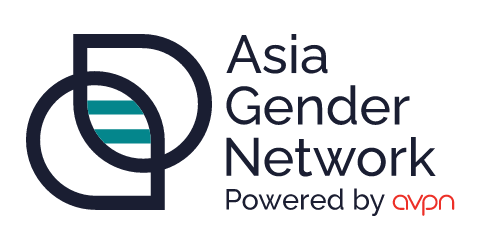AVPN is committed to promoting gender equality through scalable, systemic, and actionable change. That is why we continue to direct a range of capital sources, including private social investments and policy initiatives, towards creating a significant impact. As such, we continuously update our strategies in response to global developments. One such example is the recent G20 New Delhi Summit held on 9 – 10 September 2023.
The 18th meeting of the G20 and the first to be held in India, this year’s Summit saw various world leaders emphasising their commitment to “close gender gaps and promote the full, equal, effective and meaningful participation of women in the economy as decision-makers”. In fact, the 2023 G20 Declaration dedicated two pages to outline their commitment to empower all women and girls. In line with this Summit’s theme of “Interconnectedness”, the Declaration highlighted a few interconnected issues that must be addressed to reduce the gap in social and economic participation.
These issues include women and girls’ access to education, the need for social protection, the disproportionate burden of care and unpaid work on women, sexual and gender-based violence, and women’s participation in formal financial systems. This Declaration demonstrates an understanding that opportunities in the workforce and education alone are not enough to result in women’s meaningful social, economic and political participation. Beyond providing equal opportunities, it is also essential to disrupt the negative feedback loops that prevent women from making full use of these opportunities. This is especially necessary in East and South Asia where the gender gap is particularly wide, reflected in the World Economic Forum’s Global Gender Gap Index 2021.
A key conclusion emerged: it is time to shift the focus from women’s development to women-led development. Our efforts at AVPN are centred around two key Asian economies, Indonesia and India, both leveraging off the momentum around gender inclusion and the consecutive G20 presidencies. As part of the G20 Indonesian presidency, we launched a USD 25 million Asia Gender Equality Pooled Fund, a Gender Diverse MSME Taskforce and the Principles of Gender Lens Giving. The AVPN Community Engagement Event was then hosted in Bali for 60 leaders from the social investment community to announce a series of funds and interventions as part of our G20 commitments. We are also taking this opportune time to collaborate with partners and amplify support for gender inclusion in India, including the launch of the Gender Diverse MSME (Micro, Small, and Medium Enterprises) Taskforce aimed at scaling women-led MSMEs during the G20 Indian Presidency.
As part of our partnership with the Business 20 Engagement Group, we will be focusing on scaling financing needs for these MSMEs. The Engagement Group set ambitious yet achievable targets for G20 member states, to work towards reducing the financing gap for MSMEs from 56.6% to 30% by 2030 and increase the number of MSMEs with access to formal credit from 29.8% to 50% by 2030.
We also recognise the intersection of climate change and gender inclusion — our taskforce advocates for governments to declare women-led MSMEs as a priority sector for financial institutions, ensuring access to climate adaptation financing. We also recommended tax incentives for investors funding women-led MSMEs and microinsurance schemes for the more vulnerable ones.
As economies begin to recover from the pandemic, it is important to ensure that the most affected communities are not left behind. That is why another area of focus for us is the care sector, specifically unpaid care and domestic work, both extremely vital to society. To aid us in our work here, we partnered UN Women India, Asian Development Bank, National Institute of Public Cooperation and Child Development, Ministry of Women & Child Development, Government of India, along with IDRC CRDI, International Labour Organisation, National Forum for Creche and Child Services, IWWAGE, and CIPPEC on 1 August at the G20 ‘Beyond 2025: Three Bold Gender Equality Action Areas’, official side-event to the Ministerial Conference on Women’s Empowerment in Gandhinagar. There, everyone tabled key challenges and recommendations toward reducing and redistributing the disproportionate care burden on women to the Ministerial Conference on Women’s Empowerment. This included recognising unpaid care work, dissecting what constitutes the care economy sector, as well as understanding stages, sub-sectors, and entry points for social investors and the private sector to enable sustainable and scalable financing.
The ability to keep adjusting our approach towards gender lens giving as we learn more, is crucial for sustainability. Tune in to the first ever episode of our podcast Gender Agenda, where we tackle the shift to women-led development with guests Anne Sutanto and Kanta Singh — now streaming on Spotify and Apple Podcasts.


